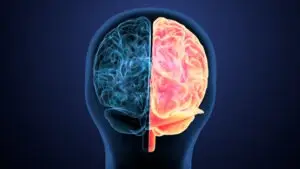
Traumatic brain injuries (TBIs) are among the most severe, life-altering injuries an individual can sustain. Victims should rely on a Orangeburg personal injury lawyer to guide them through the legal process. An Orangeburg traumatic brain injury lawyer from Shelly Leeke Law Firm will work tirelessly to give you the representation you deserve.
Contributing to Traumatic Brain Injuries
It’s true that traumatic brain injuries (TBIs) emerge from a complex interplay of various contributing factors, and these factors can be broadly categorized into environmental, occupational, and personal risks.
Motor Vehicle Accidents
One of the leading causes of TBIs in Orangeburg is motor vehicle accidents. The sheer force involved in these incidents, especially those involving high-speed crashes or heavy-duty vehicles, can lead to severe blunt-force trauma to the head, causing debilitating brain injuries.
Falls
Falls, both from significant heights and due to slips and trips, significantly contribute to TBIs. This factor is common among the elderly, who might suffer from mobility issues, and young children, who might be more prone to accidents due to their active nature. Poorly maintained public and private infrastructure in Orangeburg, such as broken sidewalks or poorly constructed staircases, can contribute to these falls.
Sports and Recreational Activities
The risk of TBIs is notably high in particular sports and recreational activities, including but not limited to football, basketball, BMX cycling, and skateboarding. Such high-impact sports can lead to forceful impacts on the head in instances of accidents. Moreover, the risk can be significantly increased due to factors such as the lack of appropriate safety gear, negligent supervision, or failure to comply with safety standards and protocols.
Violence
A darker side of the contributors to TBIs lies in violence. Instances of domestic violence, gun-related violence, physical assaults, and child abuse can lead to severe injuries, including TBIs. Such incidents can result in TBIs through direct trauma to the head or secondary complications due to the violence.

Steps to Take After a Traumatic Brain Injury Occurs
The aftermath of a TBI calls for immediate action and diligent care. The steps taken post-injury can significantly affect the eventual recovery prospects of the injured person.
Seek Immediate Medical Help
The moments following a TBI are critical. Calling for emergency medical assistance and rushing the injured individual to a healthcare facility is essential. Immediate medical attention can potentially prevent further complications and initiate recovery.
A healthcare professional can perform a comprehensive evaluation and provide necessary interventions, including life-saving measures.
Follow-Up Medical Care
Once the initial crisis has been managed, regular check-ups and follow-up appointments with healthcare providers are key to tracking recovery progress. TBIs often require an integrated approach to care involving neurologists, physiatrists, neuropsychologists, and occupational and physical therapists.
Document the Injury and Treatment
Keeping a meticulous record is an essential aspect of managing TBI cases. This includes preserving all medical reports, records, bills, and any documentation evidencing the injury’s severity and the treatment provided. Also, maintaining records of lost wages due to the injury can be crucial if you decide to pursue a legal claim later.
Consult a Lawyer
If the TBI was due to another party’s negligent or intentional actions, consulting with a lawyer experienced in personal injury cases, particularly TBIs, is wise. An Orangeburg traumatic brain injury attorney can offer valuable advice on the legal options available and guide you on the next steps toward seeking justice.

Busting Myths About Traumatic Brain Injuries
Despite TBIs being a common injury, misconceptions often surround them. Dispelling these myths is essential to understanding the injury and its potential implications.
All TBIs Are the Same
Contrary to this belief, TBIs can vary significantly in their severity, symptoms, and outcomes. A host of factors influence the outcome of a TBI, such as the force and direction of the impact, the area of the brain affected, and the individual’s overall health before the injury. Every TBI is unique and needs a personalized treatment approach.
Mild TBIs Are Not Serious
It is a dangerously misleading myth. Even concussions, often classified as mild TBIs, can have long-term effects and complications. These include persistent headaches, memory issues, mood changes, and post-concussion syndrome, a complex disorder with a range of symptoms that can persist for weeks or even months after the concussion.
You Must Be Unconscious to Have a TBI
Many people believe that a TBI only occurs if the victim loses consciousness. However, it is essential to understand that a TBI can occur even without a loss of consciousness. Any significant blow or jolt to the head can cause a TBI, and symptoms can surface even hours or days after the incident.

Recoverable Damages in Traumatic Brain Injury Cases
If a TBI is caused due to another party’s negligence or intentional misconduct, the victim can seek several damages:
- Medical Expenses: These damages cover past, current, and future medical bills directly related to the TBI. It includes costs of hospital stays, surgeries, medications, doctor visits, physical therapy sessions, and any necessary medical equipment or home adaptations needed due to the injury.
- Lost Wages: If the TBI has led to the victim missing work due to hospitalization or ongoing treatments, they can seek compensation for these lost wages. Moreover, if the TBI has diminished their ability to work or earn as they could pre-injury, they can seek compensation for loss of future earning potential.
- Pain and Suffering: These damages aim to compensate for the physical pain, emotional distress, and mental anguish the victim has endured due to the injury. It also includes compensation for reduced quality of life, loss of enjoyment of life, and even for the emotional distress of family members.
- Punitive Damages: In cases where the defendant’s behavior was exceptionally reckless, malicious, or egregious, the court may award punitive damages. These damages are designed to punish the defendant and serve as a deterrent for similar behavior in the future.

The Crucial Role of a Lawyer in Traumatic Brain Injury Cases
Pursuing justice and rightful compensation in TBI cases often necessitates the expertise of a proficient and experienced traumatic brain injury lawyer in Orangeburg.
Investigate the Cause of the Injury
A skilled traumatic brain injury attorney in Orangeburg can thoroughly investigate the accident’s circumstances, collect and preserve crucial evidence, interview witnesses, and work with experts to establish the defendant’s liability. This evidence forms the bedrock of the case and can significantly influence its outcome.
Negotiate with Insurance Companies
Dealing with insurance companies can often be daunting as they employ tactics to minimize their payouts. A lawyer can handle these negotiations on your behalf, countering such strategies and ensuring you receive a fair settlement that reflects the extent of your losses.
Litigate the Case
If a fair settlement is not achievable through negotiations, the lawyer can take the case to trial. They can meticulously build a compelling case, articulate it effectively to the jury, and showcase why you deserve compensation for your losses. A lawyer’s advocacy skills can be vital in persuading the jury of the merits of your case.
Contact Shelly Leeke Law Firm for an Orangeburg Traumatic Brain Injury Lawyer
The benefits of working with an Orangeburg traumatic brain injury lawyer from Shelly Leeke Law Firm can not be denied. Our team’s years of experience and track record for success means you’re in good hands. Contact us today.







